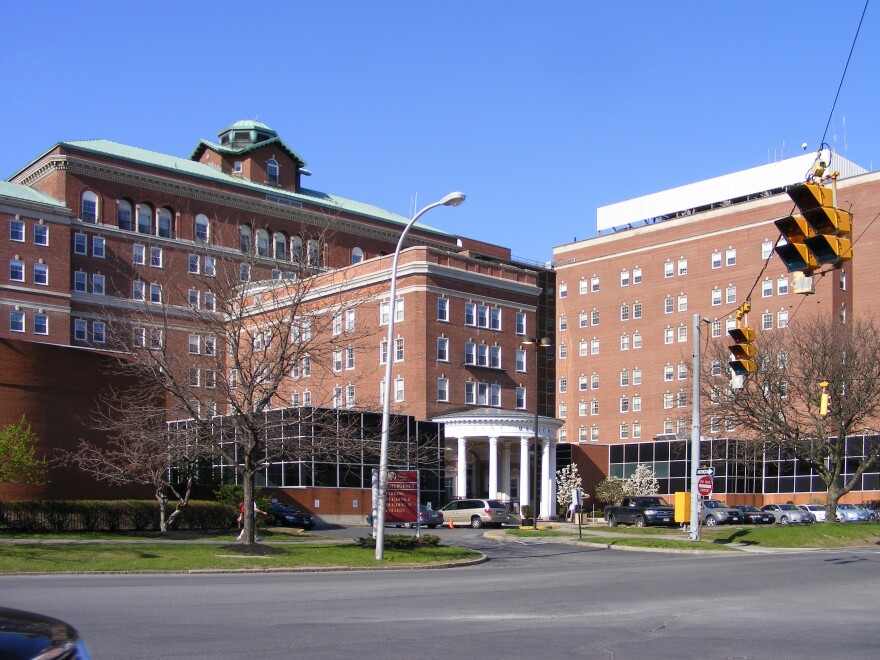As the country grapples with the addiction epidemic, one Capital Region hospital is offering opioid-free surgery for a select number of operations.
Albany Medical Center is implementing a new multidisciplinary approach to operations called The Enhanced Recovery After Surgery initiative. Started in Europe, the initiative provides shorter hospital stays and better pain management with less need for opioids, according to officials.
The American Society of Addiction Medicine reports 20.5 million Americans 12 or older had a substance use disorder in 2015. About 10 percent of cases involved prescription pain relievers.
Under its new effort, Albany Med says patients can go home with fewer opioids in hand.
Dr. Igor Galay, an anesthesiologist at Albany Med and the first to advocate for the ERAS program at the hospital, says the initiative increases departmental communication to provide a higher level of care.
“Each team was concerned about their own goal and objective, and would frequently forget [the] main reason of all of us being here, which is to take care of the patient and to achieve [the] best outcome for that person specifically,” says Galay.
Dr. Jennifer Michaels is the Medical Director of The Brien Center, Berkshire County’s largest provider for mental health and substance abuse disorders. Michaels, who is not connected to Albany Med, says alternatives to opioids will help curb prescription drug addiction.
“Patients obviously have a right to appropriate pain relief after surgery. However, I see a strong tendency for providers to overprescribe opioids. Prescriptions are longer and stronger then they need to be and patients are often not informed of non-opioid alternatives,” says Michaels.
The hospital’s Dr. Brian Valerian, a colorectal surgeon who was one of the first to implement the program, says education is another main component of ERAS. He says by being open with patients about pain expectations, post-op stress can be reduced.
“The idea behind the way we take care of patients is to decrease the physiologic stress that we cause patients so that they have a quicker recovery, they are able to get out of the hospital sooner and get back to normal function faster,” says Valerian.
Dr. Galay says Albany Med staff start by explaining to patients that pain after surgery is expected and it can be alleviated to some extent. He says doctors can then employ other pain management options.
“We rely heavily on nerve blocks by using local anesthetics and numbing medicines to numb up the part of the body where the pain is actually happening. We [are] using other medications that are mild medications by themselves but in combinations they have cumulative effects and they allow us to accomplish this tolerable amount of pain in our patients,” says Galay.
Dr. Valerian says these approaches are vital to a swift recovery after colorectal surgery. He says when doctors operate on the intestines, the organ “kind of” goes to sleep, and opioids slow the recovery process even further.
“Other side effects, which opioids have that, I think is pretty well known – [They] decrease your drive to breathe, they’re addictive, they can cause confusion,” says Valerian.
Dr. Galay says by using the ERAS initiative and eliminating opioids, the average hospital stay at Albany Med is decreasing from four to six days post-op to one to three days.
Under the effort, surgeons are checking in with more patients more often to monitor progress and encourage movement and exercises during recovery.
Dr. Valerian says patients who have had surgery before are the best example of how well the ERAS initiative works.
“They’ve had surgeries without this kind of program or treatment when they were given opioids and had either effects or side effects of those. When they realized that we can still manage their pain effectively that they can do the things that they need to do, that they can get home sooner, they feel better and for many patients they take little to no opioids at this point,” says Valerian.
Dr. Michaels, from the Brien Center, commends Albany Med for providing this medical alternative.
“Looking forward and innovating in the area of team management and I think as time goes on more programs will be embracing this option because not only does it decrease opioid prescribing but it works to help people experience less pain,” says Michaels.
The ERAS program began as a pilot initiative in Albany Med’s colorectal surgery department and has branched into urology. Dr. Galay has also reached out to the general surgery and oncology departments to begin implementation.




